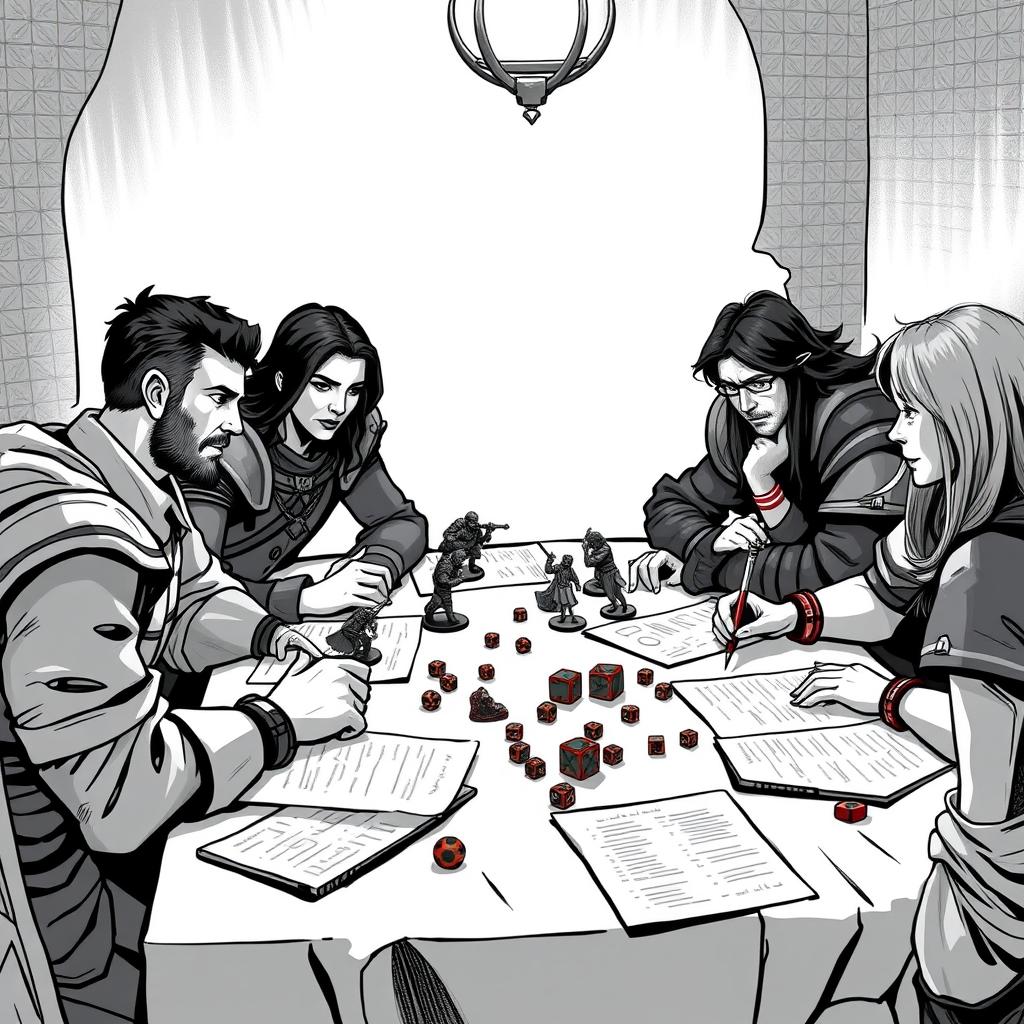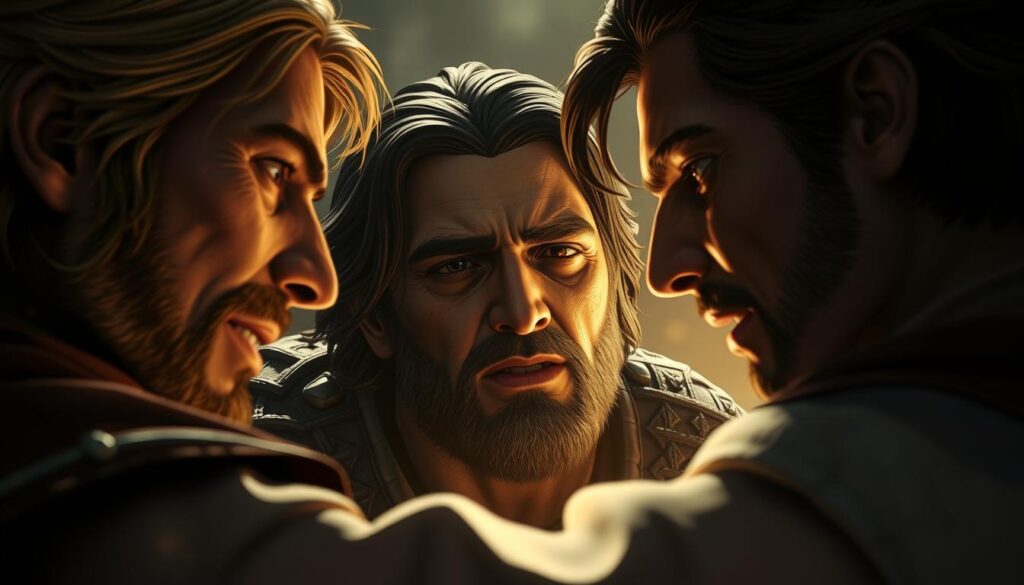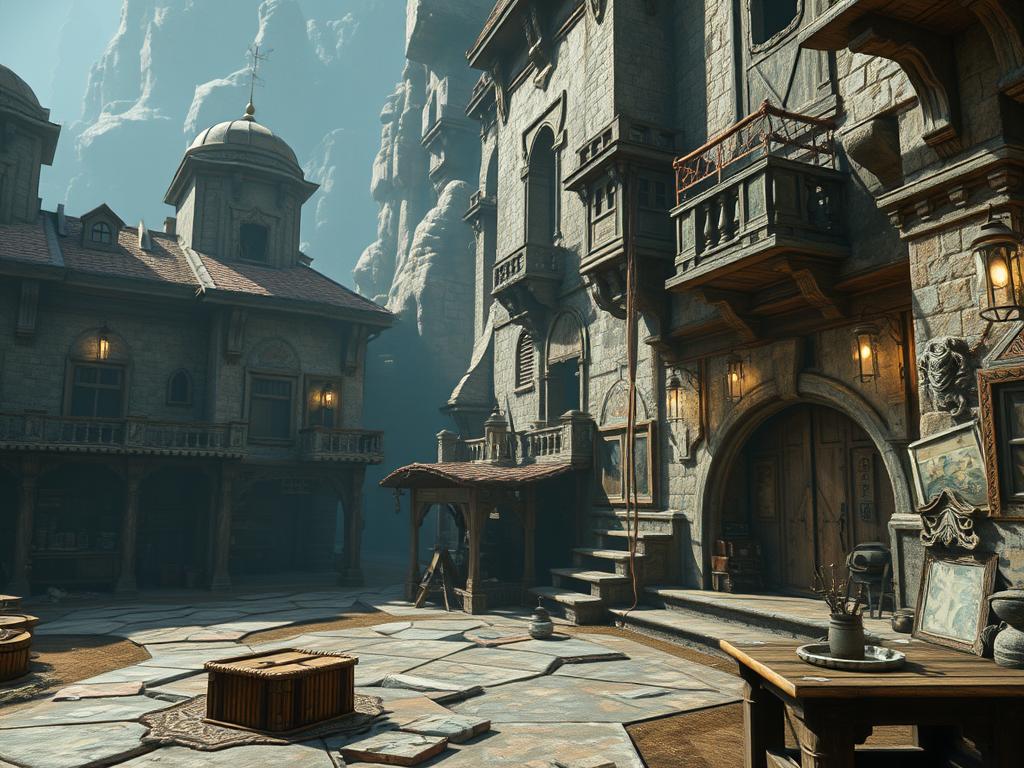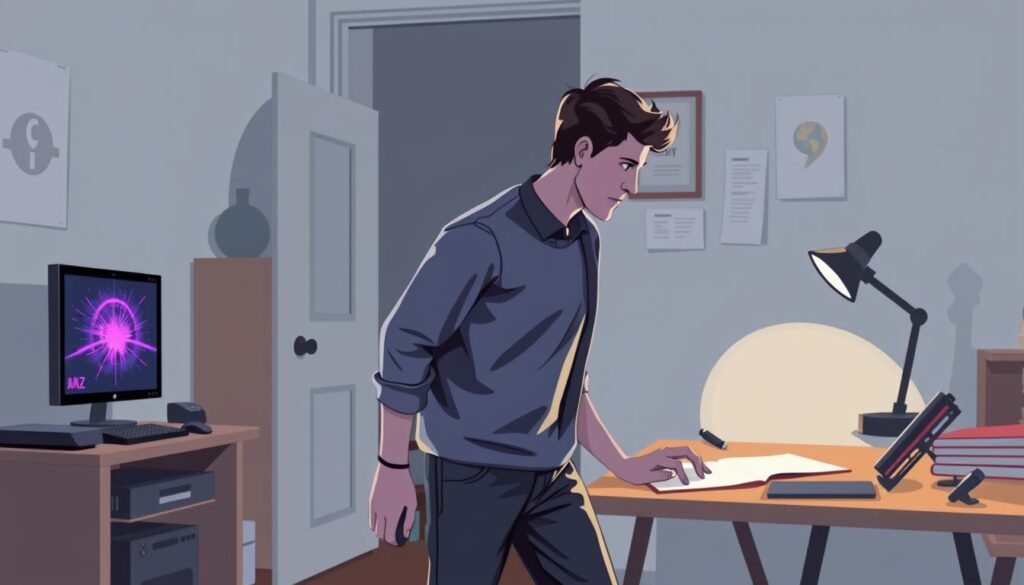Physical Address
304 North Cardinal St.
Dorchester Center, MA 02124
Physical Address
304 North Cardinal St.
Dorchester Center, MA 02124

Gaming engages different parts of your brain, helping to unlock creative pathways
Writer’s block often happens when we overthink or become too critical of our own work. Gaming provides a perfect mental reset by engaging different parts of your brain while giving the “writing part” a chance to rest and recharge.
When you’re immersed in a game, your brain enters a state of “flow” – that magical zone where you’re completely absorbed in an activity. This state has been linked to increased creativity and problem-solving abilities. As science fiction writer Benjanun Sriduangkaew explains, “I was absolutely obsessed with [NieR: Automata] for at least a month after completing the game, and a lot of the story beats, themes and imagery have stayed with me.”
Games also reduce stress by triggering the release of dopamine – the feel-good neurotransmitter that helps your brain function more effectively. Lower stress levels make it easier for creative ideas to flow naturally rather than being forced.
Contrary to popular belief, certain types of games can actually improve your ability to focus. Strategy games and puzzle games require concentrated attention and logical thinking – skills that translate directly to the writing process.
Many games require you to track multiple objectives, manage resources, and make decisions under pressure. These same skills help writers juggle plot threads, character development, and narrative pacing. When you return to your writing after a gaming session, you might find your ability to organize thoughts has improved significantly.
Games teach valuable lessons about pacing, tension, and narrative structure. As comic illustrator Victoria Chu notes, games like Final Fantasy helped her “flesh out narratives and tell a detailed storyline.” Even when she found some plots “extremely complicated and convoluted,” this taught her what to avoid in her own storytelling.
Story-rich games like Disco Elysium, NieR: Automata, and The Last of Us offer masterclasses in character development, dialogue, and world-building. These games can inspire your own storytelling approaches and help you see new possibilities for your characters.
When you’re stuck on a particular scene or character motivation, playing through a similar scenario in a narrative game can offer fresh perspectives. Pay attention to how the game handles emotional beats and character growth.

Games like The Sims and Minecraft provide open-ended creative playgrounds. As one writer explains, “Whenever I felt a particular lack of creative energy, I turn to video games: specifically, The Sims.” These games let you experiment with characters, scenarios, and environments without the pressure of formal writing.
Tabletop role-playing games like Dungeons & Dragons are particularly powerful for writers. Creating characters with backgrounds, motivations, and flaws can jumpstart your creativity and help you develop more nuanced fictional characters.

Puzzle games like The Witness engage problem-solving skills that can transfer to writing challenges
Games like The Witness, Portal, and XCOM exercise your problem-solving abilities. When you’re stuck on a plot problem or structural issue in your writing, the lateral thinking required by these games can help you approach your writing challenges from new angles.
One writer shared how a detail from XCOM 2 helped her finish a difficult description: “I was stuck in a military science fiction story. Something in XCOM 2 nudged me with a little detail that let me finish writing an atmospheric description. I think it was something as random as the lighting in a mission.”

Setting clear boundaries between gaming and writing sessions helps maintain productivity
The key to using gaming effectively is balance. Here’s how to ensure your gaming actually enhances your writing rather than replacing it:
Start your writing session with 15-20 minutes of a game that engages your creativity. This can serve as a mental warm-up, getting your brain into a more receptive and creative state before you tackle your writing project.

Even if you don’t have time for a full gaming session, video game soundtracks can be powerful tools for creating the right writing atmosphere. Unlike music with lyrics, which can be distracting, game soundtracks are designed to enhance focus while creating emotional atmospheres.
As one writer explains, “Many games have music that’s intrinsically linked to individual scenes or moments. They’re much better than most at putting me in specific moods.” Try soundtracks from games like Journey, The Elder Scrolls series, or Hollow Knight to create different emotional tones for your writing sessions.
“To help you get in the zone, pop up your preferred music streaming app of your choice, search for a popular video game soundtrack, and get your pen and paper ready.”

Games can help you process and understand complex emotions, which is invaluable for writers creating authentic characters. As Victoria Chu shared about playing Persona 5, “Having to deal with dark feelings was refreshing because it was making me uncomfortable in a good way.”
This emotional processing can translate directly to your writing. One writer noted that playing The Sims helped them understand family dynamics they hadn’t experienced personally: “When I played the Sims, it was the first time I emotionally processed what it was like to have siblings. I grew up as an only child and never had to share any of my belongings or spaces in my household.”
By experiencing different perspectives and emotional situations through games, you can develop greater empathy and understanding, which enriches your character development and emotional storytelling.

Modern games are masterclasses in environmental storytelling and attention to detail. By observing how games use small details to build immersive worlds, you can enhance your own descriptive writing.
One writer shared how a small detail from a game helped overcome a specific writing challenge: “I was stuck in a military science fiction story. Something in XCOM 2 nudged me with a little detail that let me finish writing an atmospheric description. I think it was something as random as the lighting in a mission.”
Pay attention to how games use lighting, sound, environmental details, and character animations to convey mood and story. These techniques can be directly applied to your written descriptions, enabling you to create more vivid and immersive scenes.

Writer’s block doesn’t have to be the creativity-killing monster we often make it out to be. By incorporating strategic gaming into your creative routine, you can transform those stuck moments into opportunities for inspiration and growth.
Remember that the goal isn’t to replace writing with gaming, but to use gaming as a tool that enhances your writing practice. Whether you’re exploring rich narrative worlds, creating characters in RPGs, solving puzzles that exercise your problem-solving skills, or simply giving your creative mind a chance to rest and recharge, games offer unique benefits for writers.
The next time you find yourself staring at a blank page, don’t beat yourself up. Instead, consider taking a short, intentional gaming break. You might be surprised at how quickly the words begin to flow when you return to your writing.
Do you have a go-to game that helps spark your creativity when you’re stuck? Share your experiences in the comments below!